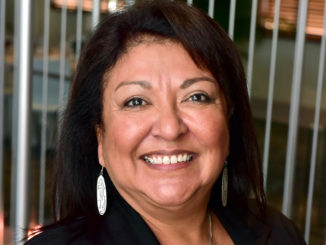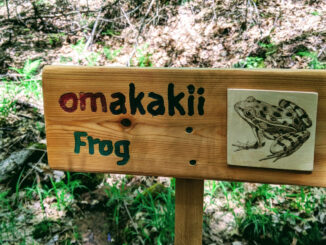 The concept of tribal sovereignty – the foundational understanding that Native American tribes have the right to self-governance rooted in legally binding treaty rights – is under the greatest assault in decades. This is happening for one major reason: private gambling interests covet the gaming revenues tribes use to support their communities.
The concept of tribal sovereignty – the foundational understanding that Native American tribes have the right to self-governance rooted in legally binding treaty rights – is under the greatest assault in decades. This is happening for one major reason: private gambling interests covet the gaming revenues tribes use to support their communities.
As the Oregonian reported last year, tribes are facing “a coordinated campaign that experts say is pushing once-fringe legal theories to the nation’s highest court and represents the most serious challenge to tribal sovereignty in over 50 years.” And as the New York Times added, “For decades, gambling has been the most important source of income for hundreds of Native American tribes. Now, in many parts of the country, the rapid spread of sports betting and online wagering is threatening to crimp that economic lifeline.”
These reports point out that the advent of regulated tribal gaming, established in the late 1980s with the passage of the Indian Gaming Regulatory Act (IGRA), has been the basis of a resurgence of self-reliance in Indian Country. Gaming revenues fund a wide array of tribal government programs that provide housing and services to family and youth, create educational opportunities, protect the environment, provide healthcare services and keep tribal culture, language and history alive. The progress our tribes have made here in Washington State is remarkable, but there is still too much poverty in our communities and still so much more work for us to do.
Widespread Legalization – Sports Betting and Online Gambling
But that work is seriously imperiled by the recent national push by non-tribal gambling corporations to legalize widespread sports betting and online gambling. These huge, national gambling companies are motivated only by profit, and don’t care if they imperil tribes’ progress toward regaining their self-reliance along the way.
Thankfully, we’ve been successful so far in Washington State in resisting their efforts to erode our sovereignty. Building on three decades of productive and successful government-to-government partnership with the State of Washington, in 2020 a bipartisan supermajority of the Washington State legislature limited sports betting to the brick-and-mortar premises of tribal casinos. The intent of this approach was to protect tribes’ ability to raise essential funds that help lift tribal communities out of deep poverty.
Those legislators, from both parties and spanning the ideological divide, understood Washington’s system of tribal gaming has been successful, safe and responsible. Their decision to limit sports betting to tribal casinos struck the correct balance. The option to participate in gaming activities became available to responsible adults, but by restricting access to the premises of tribal casinos legislators acted prudently to limit gambling in our neighborhoods and keep betting off our smartphones.
Threats to the Indian Gaming Regulatory Act
But even before most tribal sports betting launched, one well-funded non-tribal gambling company filed a far-reaching federal lawsuit. Maverick Gaming, owner of nearly half of Washington State’s neighborhood card rooms, is attempting to radically overturn both the intent, and long-established interpretations, of IGRA. In the suit, Maverick makes the inflammatory claim that our system of tribal gaming in Washington is a form of reverse racial discrimination.
A federal judge in Tacoma recently dismissed Maverick’s suit, on the procedural grounds that it violates tribal sovereignty. Maverick, however, is appealing, and its CEO says their legal strategy is to convince the US Supreme Court to overturn decades of legal rulings and wipe out gaming compacts carefully negotiated between tribal governments and state and federal authorities.
It’s not a coincidence that Maverick’s lawsuit, along with a second lawsuit that challenged the federal Native American adoption law, which the Supreme Court recently rejected, were being pushed by the same powerful and connected national law firm that also argued the legal challenge that opened the door to sports betting in all 50 states. Taken together, these efforts constitute a profound assault on tribal sovereignty.
As economist Jonathan Taylor pointed out in his study of the economic and community benefits of tribes in Washington, “Indian tribes don’t exist because the U.S. granted Indians powers based on ethnicity or race; they exist as political entities.” Attacking the sovereign authority of tribal nations risks tribes’ very existence and harkens back to the US government’s anti-tribal “termination policy” of the 1950s and ‘60s. It’s offensive, legally unacceptable and morally wrong. Washingtonians don’t want this.
When considering sports betting, the Washington legislature carefully deliberated, and ultimately settled on the right approach for our state. Tribes negotiated in good faith with state and federal authorities, and our amended compacts went through multiple levels of regulatory review. Those binding compacts represent a triumph of inter-governmental cooperation between sovereign tribal governments and state and federal authorities.
Economic Impact of Tribal Gaming
Tribal gaming in Washington delivers real and significant benefits — $6.2 billion in economic activity and more than 60,000 jobs. This helps everyone in Washington, but it’s particularly important to tribal communities that are making progress to overcome poverty, preserve their cultures, protect the environment and help their people.
Washington State tribal compacts must be upheld by the federal courts. Any other outcome would destroy decades of progress and once again strip tribal communities of their ability to govern and support themselves.
Rebecca George, an enrolled member of the Port Gamble S’Klallam Tribe, is the Executive Director of the Washington Indian Gaming Association.



